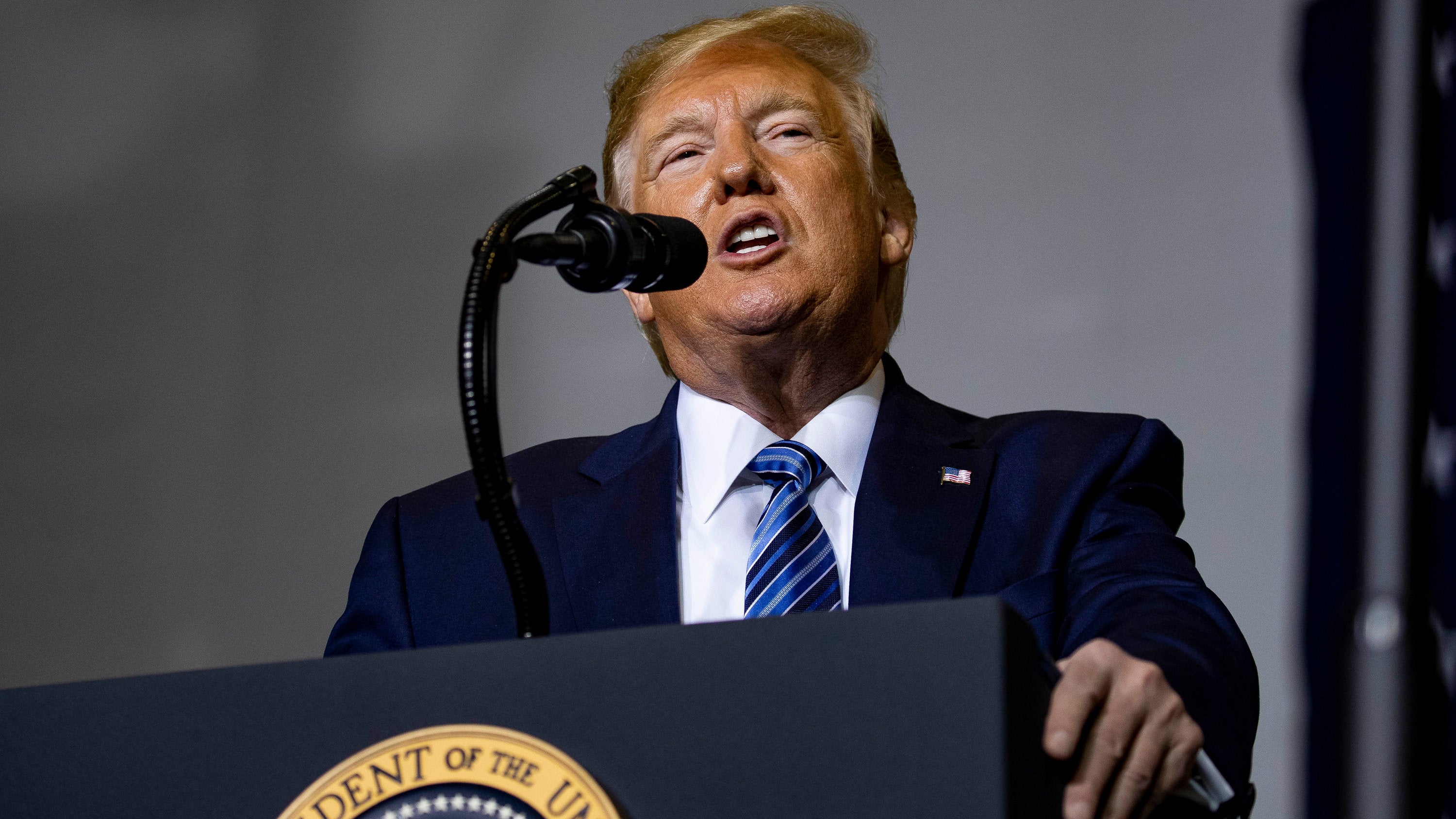The Return Of Trump Tariffs: A European Economic Outlook

Table of Contents
Historical Impact of Trump Tariffs on Europe
The Trump administration's imposition of tariffs, beginning in 2018, significantly impacted transatlantic trade relations. These tariffs, targeting various sectors including steel, aluminum, and automobiles, triggered a trade war that negatively affected European industries. The automotive sector, for example, faced substantial challenges due to tariffs on European car exports to the US. Agricultural products, such as cheese and wine, also experienced reduced market access and lower sales.
The consequences were substantial:
- Decline in transatlantic trade volume: Studies show a marked decrease in trade between the EU and the US during this period. Estimates vary, but some suggest a drop of several percentage points in bilateral trade flow.
- Increased prices for consumers: Tariffs led to higher prices for European consumers on imported goods from the US, impacting household budgets.
- Negative impact on European competitiveness: European businesses faced increased costs and reduced market share in the US, impacting their global competitiveness.
- Retaliatory tariffs from the EU: The EU responded with its own retaliatory tariffs on US goods, escalating the trade conflict and further harming economic activity on both sides of the Atlantic. This tit-for-tat approach created a cycle of negative economic consequences.
Current Political Climate and Likelihood of Tariff Reinstantiation
The current political climate in the US presents uncertainty regarding the potential for a return of Trump-era tariffs. While the Biden administration has taken a somewhat different approach to trade policy, protectionist sentiment remains prevalent within certain segments of American society and politics. A renewed focus on "America First" policies, coupled with domestic economic pressures, could make a return to protectionist trade measures a possibility.
- Analysis of current US trade rhetoric: Close monitoring of statements from US politicians and trade officials is crucial to gauge the likelihood of tariff reinstantiation. Any shift towards more protectionist language should raise serious concerns for European businesses.
- Examination of the current state of US-EU relations: The overall state of the transatlantic relationship plays a significant role. Strained relations increase the probability of renewed trade tensions and the use of tariffs as a bargaining chip.
- Assessment of the potential for negotiation and compromise: The potential for constructive dialogue and compromise between the US and the EU is crucial. Successful negotiation could mitigate the risk of renewed tariffs.
- Consideration of domestic political pressures in the US: Domestic political factors, such as lobbying efforts from specific industries, significantly influence trade policy decisions in the US.
Sector-Specific Analysis: Impact on Key European Industries
The potential impact of renewed Trump tariffs varies across different European sectors. Some will be more vulnerable than others.
Automotive Industry
The European automotive industry is particularly vulnerable to the return of tariffs. High tariffs on car exports to the US would significantly increase production costs and reduce competitiveness, potentially leading to:
- Increased production costs for European car manufacturers.
- Reduced competitiveness in the US market.
- Potential job losses in the automotive industry.
- Strategies for diversification and cost reduction: European carmakers will need to diversify their export markets and find ways to reduce costs to offset the impact of potential tariffs.
Agricultural Sector
The agricultural sector is another key area of concern. European agricultural exports to the US, including dairy products, wine, and other food items, would face higher tariffs, leading to decreased sales and potential farm closures.
Manufacturing Sector
The broader manufacturing sector would also feel the effects of reinstated tariffs. Increased costs of imported raw materials and reduced market access in the US could stifle growth and competitiveness.
Potential Mitigation Strategies for European Businesses and Governments
European businesses and governments must proactively develop strategies to mitigate the impact of potential tariffs:
- Diversification of export markets: Reducing reliance on the US market by expanding trade relations with other countries is essential.
- Investment in technological innovation: Investing in innovation to enhance productivity and competitiveness is crucial for navigating potential trade barriers.
- Strengthening of trade agreements with other countries: Developing stronger trade ties with other regions will help offset potential losses in the US market.
- Government support for affected industries: Government assistance programs, such as subsidies or tax breaks, can cushion the impact of tariffs on vulnerable industries.
- Lobbying efforts to influence US trade policy: European governments and businesses should actively engage in lobbying efforts to influence US trade policy decisions and prevent the reimposition of tariffs.
Conclusion
The potential return of Trump tariffs presents a serious challenge to the European economy. A thorough understanding of the historical impact, the current political climate, and potential sector-specific vulnerabilities is crucial. European businesses and governments must proactively develop and implement mitigation strategies to minimize the economic fallout. Careful monitoring of developments surrounding Trump tariffs and proactive adaptation are essential for navigating this uncertain trade landscape. Staying informed about the latest developments regarding Trump tariffs is vital for European businesses to safeguard their interests and prepare for potential future challenges.

Featured Posts
-
 Dont Miss Out This Weeks Efl Highlights
May 13, 2025
Dont Miss Out This Weeks Efl Highlights
May 13, 2025 -
 Gibraltar Un Accord Post Brexit Imminent
May 13, 2025
Gibraltar Un Accord Post Brexit Imminent
May 13, 2025 -
 Avengers Doomsday Potpuna Glumacka Postava
May 13, 2025
Avengers Doomsday Potpuna Glumacka Postava
May 13, 2025 -
 A Fathers Strength A Message From Hostage To Son
May 13, 2025
A Fathers Strength A Message From Hostage To Son
May 13, 2025 -
 Kult Statusz Mit Jelent Scarlett Johansson Visszaterese A Marvel Univerzum Szamara
May 13, 2025
Kult Statusz Mit Jelent Scarlett Johansson Visszaterese A Marvel Univerzum Szamara
May 13, 2025
